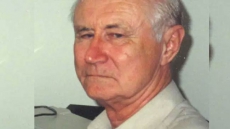TORONTO — With medically assisted death now legal in Canada, doctors need access to specific drugs that will painlessly and humanely terminate a suffering patient's life.
But just what are these drugs and what do they cost? And most importantly perhaps, who will cover that cost?
One week after the ban on physician-assisted suicide and euthanasia was officially lifted under the Supreme Court of Canada's mandate, doctors, provincial health ministries, private insurers and the pharmacy sector are still trying to sort out the answers.
Complicating the issue is the fact that oral drugs that would be taken by eligible individuals seeking to end their lives on their own are not readily available in Canada, so doctors willing to help a patient die must administer the lethal medications.
Vancouver's Dr. Ellen Wiebe has so far delivered those injections to seven patients who fit the top court's criteria for assisted death due to intolerable suffering from a "grievous and irremediable" medical condition.
"We prescribe a double-dose, that's the standard protocol and the idea is you're giving one dose and the other is a standby, and then the doctor has to bring those drugs back to the pharmacist," said Wiebe, noting that the unused portion must be destroyed.
But in B.C. at least, the trio of powerful and fast-acting anesthesia-related drugs Wiebe uses — midazolam, propofol and rocuronium — aren't covered by either provincial or private insurance, so their $250 cost must be paid for by the patient.
"Basically, this is just in process," she said. "I expect and want the government to pay for these drugs and I expect that will happen, it just takes time."
A few provinces have already committed to covering the cost.
That includes Quebec, which brought in its own physician-assisted dying legislation last December. The province covers the price tag for euthanasia drug kits provided to doctors willing to help a patient end their life.
While all the details haven't been worked out, Ontario has also said it will cover the cost of the medications.
"When it comes to patient access to medical assistance in dying, I don't think financial costs should be a barrier," said Ontario Health Minister Dr. Eric Hoskins.
Hoskins said a letter has been sent out to all pharmacists informing them the drugs will be made available to eligible patients for free and outlining the process for dispensing them and covering their cost.
"So it won't require patients to purchase the drugs and then be reimbursed," he said. "The health-care provider will receive the drugs from a licensed pharmacist and the pharmacist will bill the province directly."
Alberta, which is in the process of drafting its own regulations based on the high court's ruling, is also prepared to cover the cost of the lethal drugs, where applicable.
"If you're in a hospital setting or another primary-care setting like a long-term care facility, it would be covered in accordance with the Canada Health Act, so the hospital would pick up the cost," Health Minister Sarah Hoffman said from Edmonton.
"And if you're at home, we're working to make sure this is absolutely not a barrier," added Hoffman. "We're working with our own drug plan — with Blue Cross — and having conversations with others.
"But we want to ensure that again in accordance with the Supreme Court direction that access is not a barrier, and that of course includes access to the actual drugs."
As for private insurers, Joan Weir of the Canadian Life and Health Insurance Association suggested the decision as to whether employee-based plans or policies held by individuals would cover medications for assisted dying is still in flux.

"From the perspective of drugs, we're just starting to look at this now," said Weir, director of health and dental policy for the association, noting that individual insurance companies have their own lists of medications eligible for coverage, called formularies.
"Private plans pay for drugs that are dispensed by pharmacies and not knowing what these drugs are, I'm not certain that pharmacies actually dispense these drugs today," she said.
"Depending on what that drug mix is, they could already be on formularies. That's the next step for us to take a look at. And if they're not, we probably will be looking at what the industry should do on a whole."
Phil Emberley, director of pharmacy innovation at the Canadian Pharmacists Association, said his sector is also seeking clarity on the issue of which drugs are appropriate for helping patients who meet the necessary criteria to end their lives.
Of particular concern are oral pharmaceuticals that patients could take themselves on their own timetable, rather than booking a specific time to have a physician provide a lethal injection.
"When we looked to other jurisdictions that have assisted dying, such as the State of Oregon and the Netherlands, in general they use medications known as barbiturates," he explained. "This is a class of medications that in the past were used for sleeping disorders, but they have very limited therapeutic uses other than assisted dying these days."
But these drugs — secobarbital and pentobarbital — are not readily available because manufacturers are no longer producing the medications in any quantity, Emberley said.
"So that's one of the concerns we have in light of the many drug shortages that we've dealt with recently. And this is a very specific need that would be out there.
"We are very much pressing for medications that would be available and could be prescribed and accessed when there is a need."
Wiebe said patients aren't able to choose to die with self-administered oral drugs because pentobarbital is difficult to obtain and other medications are not considered effective for bringing on death without potential complications and in a reasonable amount of time.
"The ones we have are just not acceptable for that," she said. "And so none of us are going to be using oral until we get pentobarbital."
Wiebe could have accessed this barbiturate — the drug is approved in Canada — but the company that has the rights to sell it in this country told her it would cost $23,000 for a single dose.
So doctors like Wiebe — and the patients who wish to seek an end to their suffering on their own terms and in their own time — must wait to see whether pentobarbital will become accessible at a reasonable cost.

"The issue with the oral drugs is very complex and it would be nice if it could be solved," said Wiebe. "But that's not going to happen quickly."




